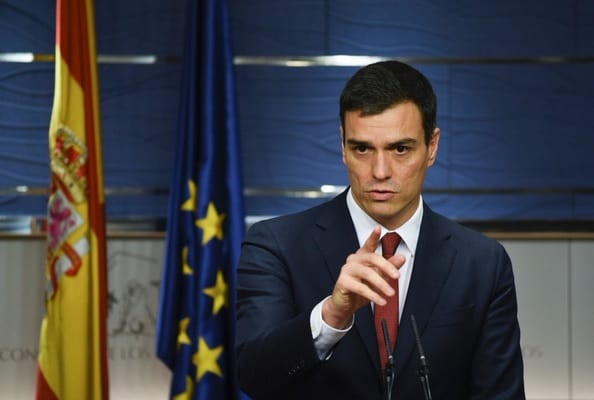IT’S a week that will decide Spain’s future.
But Socialist leader Pedro Sanchez faces a desperate last-ditch battle to persuade Spain’s rival parties to back his bid to become prime minister.
The PSOE boss is using this week’s investiture debate to put forward his case.

In Wednesday’s debate, the leaders were in adersarial mood in Congress, with the PP’s Mariano Rajoy labelling Sanchez a ‘fraud’ and ‘a bluff’.
With Podemos and the ruling PP parties both insisting deals with the PSOE are out, a serious amount of horse trading is set to take place ahead of today’s vote.
Should Sanchez fail, one final vote will take place at midnight on Friday, before a new general election is called for June 26.
To succeed in his investiture bid, Sanchez needs either the backing of half of the 350 deputies for an overall majority, or to secure the abstention of enough parties to form a working majority.
So far, Sanchez has the backing of his party’s 90 deputies and 40 from Ciudadanos, far short of the magic 176 figure.
Podemos leader Pablo Iglesias has refused to strike any sort of deal with the PSOE unless the parties agreement with Ciudadanos is modified.
Meanwhile, Rajoy, whose party won 123 seats in December, has been unable to gain sufficient backing for his own investiture bid.
The PP leader endures an acrimonious relationship with Sanchez and it would be a shock if Rajoy were to offer his rival a helping hand into power.
After all, Sanchez previously rejected Rajoy as a coalition partner.
The consequences of the current stasis continuing are huge, with billions likely to be wiped from the value of Spanish companies on the stock market.
This is already the longest Spain has gone without a government since democracy was restored.
Whether the painful transition from a two-party system to multi-party politics lasts days or months is now down to Sanchez’s negotiating powers.
Click here to read more News from The Olive Press.








